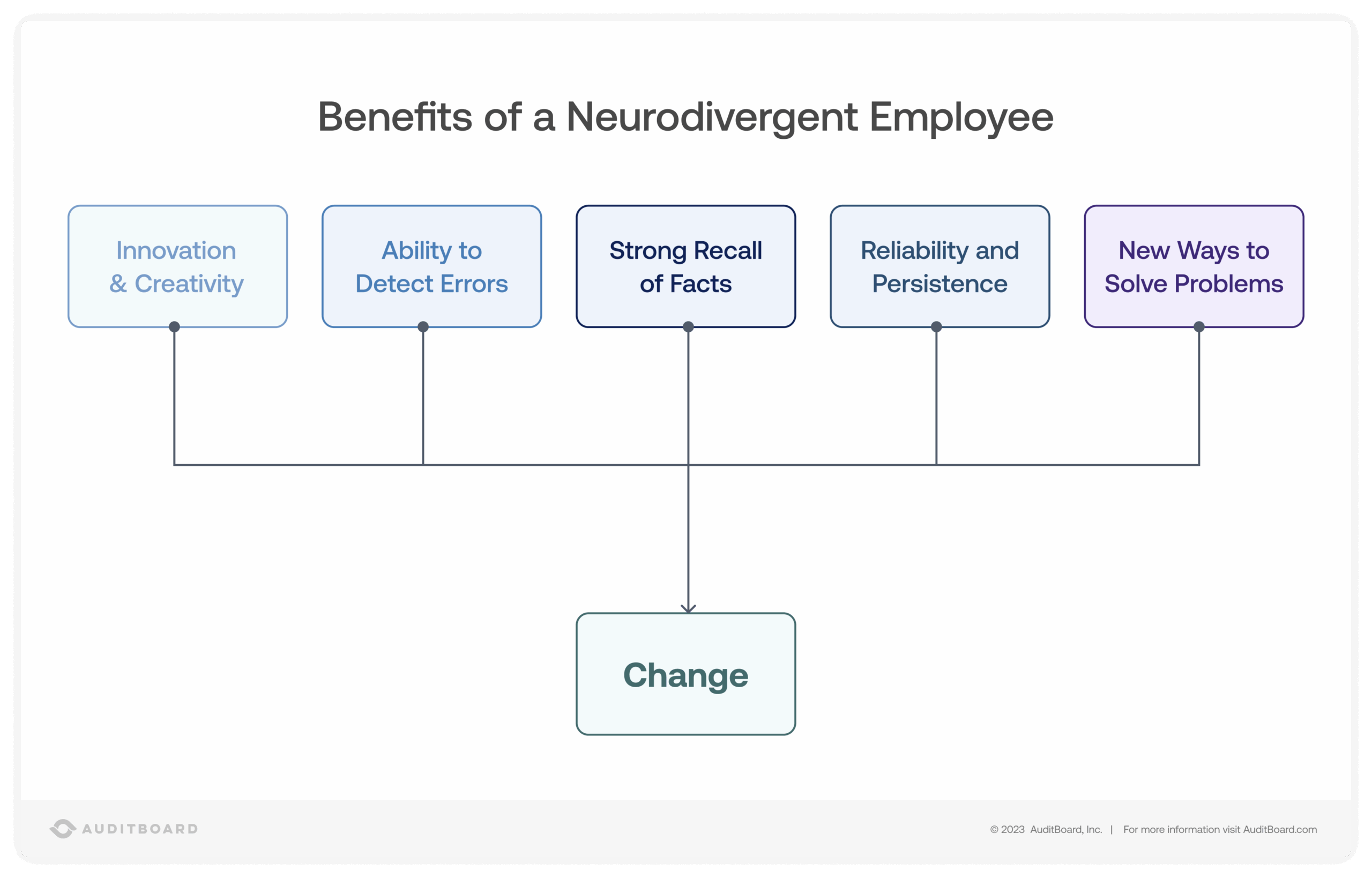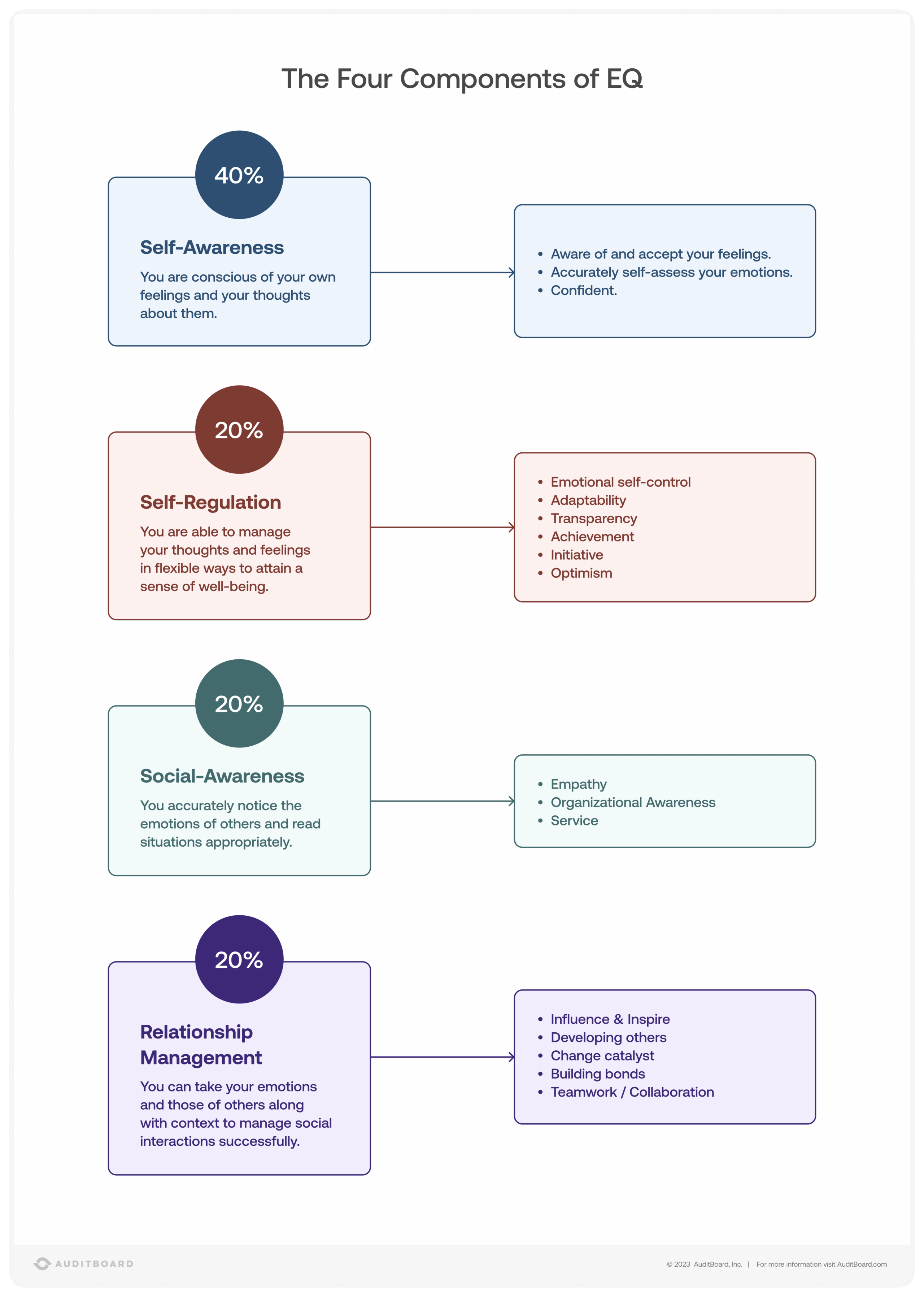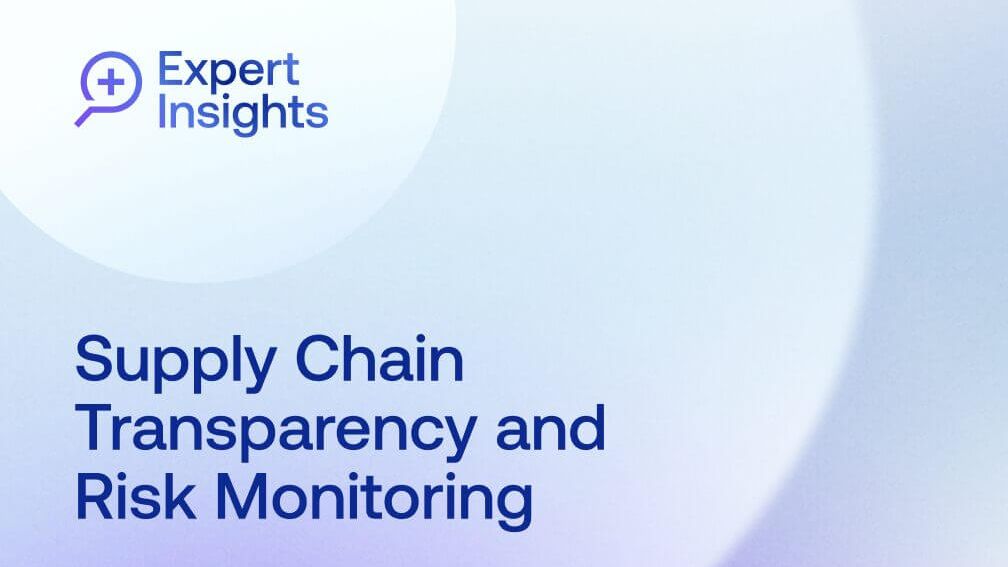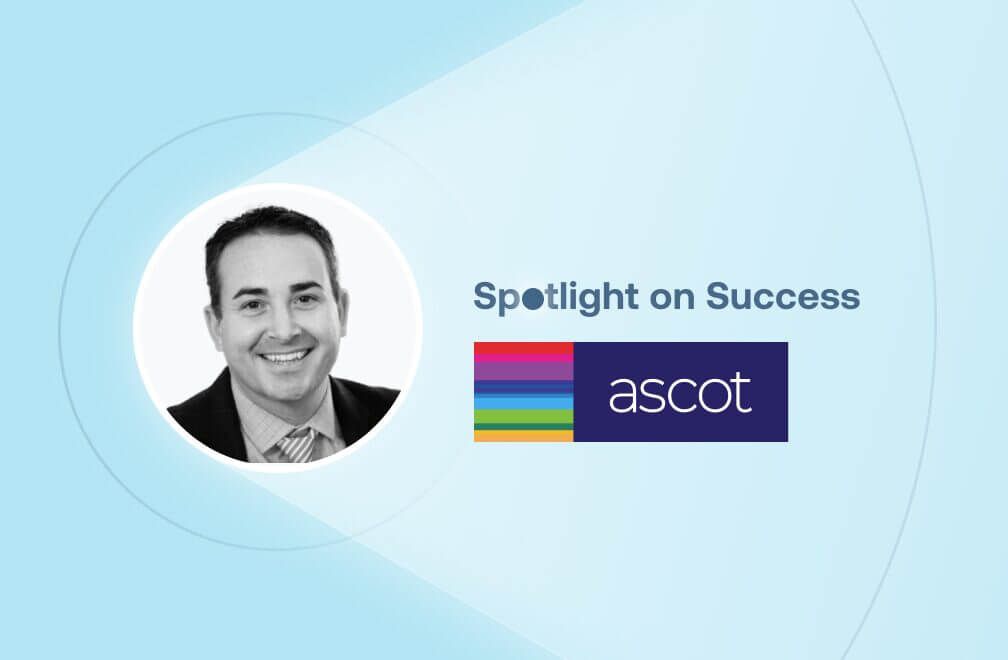
June 7, 2023 • 8 min read
The Neurodiverse Leader: The Power of Emotional Intelligence in Leadership

Nancy Yuen
Neurodiversity describes the idea that individuals experience and interact with the world in many different ways — there is no one “right” way of thinking, learning, or behaving, and differences are not viewed as deficits. As an internal auditor, this subject is personal for me because I identify as neurodivergent. I grew up in a culture and time where mental health was not discussed widely and was seen as an affliction rather than prioritized and safeguarded. It wasn’t until I was diagnosed with Asperger’s Syndrome, a high-functioning form of autism, in my youth that a fuller picture of the social challenges I faced in the classroom and on the playground emerged.
As it turns out, I am not alone: an estimated 15-20% of the world exhibits some form of neurodivergence. I hope to contribute to the strides being made to destigmatize this topic in our industry and in society. This begins with an exploration of the interconnectedness between neurodivergence, emotional intelligence, and leadership in the workplace. In this article, I will dive into some of the unique traits associated with neurodivergent individuals. I will then explore the differences between cognitive and emotional intelligence (EI) and how any individual can take steps to improve their EI. Finally, I will discuss some tools that individuals seeking to improve their EI can leverage to better communicate with colleagues and teammates.
Neurodiversity and Emotional Intelligence
Understanding and embracing neurodiversity in workplaces can improve inclusivity for all people. Neurodiversity encompasses a range of conditions including autism spectrum disorder, dyslexia, ADHD, and OCD. The neurodiverse population tends to experience lower emotional intelligence levels in comparison to neurotypical people. However, despite facing challenges in conventional work or educational settings — e.g., difficulty focusing, sensory issues, understanding social cues and norms — neurodiverse individuals also possess distinctive strengths. Some notable benefits include: mastering a dominant skill or talent, speed in pattern recognition and problem solving, the ability to think critically and abstractly, and the superhero power of resilience. If you are familiar with Shark Tank’s Barbara Corcoran, Chess Grandmaster Bobby Fischer, the great actor Sir Anthony Hopkins, and tech moguls Bill Gates and Elon Musk, then you have witnessed the journeys of industry leaders who are also neurodivergent.

Your Emotional Quotient (EQ) Versus Your Intelligence Quotient (IQ)
No matter if you identify as neurodivergent or neurotypical, all of us exist on a spectrum of emotional intelligence. While we are each born with an intelligence quotient (IQ) and an emotional quotient (EQ), EQ may play a more important role in determining an individual’s success.
According to research by psychologist Daniel Goleman, emotional intelligence accounts for nearly 90 percent of what sets high performers apart from peers with similar technical skills and knowledge. Goleman further breaks EQ down into four categories: self-awareness, self-regulation, social awareness, and relationship management. One example where EQ comes into play is conflict, a natural part of life and the workplace. Because 90% of the outcome of a conflict is determined by delivery of the message and tone of voice, it is easy to see how all four components of EQ must be leveraged to minimize the effects of a conflict.

Thankfully, for those of us seeking to improve our communication skills or become leaders in our field, EQ is significantly more malleable compared to IQ. In fact, unless a person suffers a brain injury, their IQ will only experience minor fluctuations in their lifetime.
EQ and Leadership: Three Ways to Elevate Your EQ
Wisdom, trust, and compassion are the foundations of great leadership — which is also rooted in cognitive intelligence and emotional intelligence. In my experience, a great leader is not only someone who strives to unify and empower their team to shine as a collective unit; a great leader is also someone who is sensitive to the emotions of those around them.
Internal audit, like most careers, presents potential scenarios for conflict that can be stressful (delivering the results of a contentious audit to a client, for example). I believe that any leader who is committed to self-improvement will benefit from taking steps to improve their EQ. Even if you are not neurologically hardwired to handle emotional situations well, there is hope because there is room for improvement. The following are three steps I have successfully utilized to improve my own EQ:
- Self Assess: Take the Emotional Intelligence test and identify personal areas for improvement. This test can be taken more than once, I like to retake it from time to time. Acknowledge the strengths and positives of your assessment, not only the weaknesses. Celebrate your wins as you consciously work on improvements.
- Pause, Pause, Pause: Pausing before responding in a conversation buys you time to 1) acknowledge your feelings 2) pay attention to others and 3) allow your brain to interpret and respond mindfully. Pausing can also help you remember to breathe. This is especially important in a charged conversation, when our adrenaline runs high and we can forget to breathe.
- Practice, Practice, Practice: Like all worthy things in life, we must put in the time and effort to improve our EQ. It is important to recognize that EQ growth occurs over a lifetime. Be on the lookout for tools and resources, such as EI or anger management workbooks, that resonate with you and work for you. Finally, get out of your comfort zone and converse by practicing or role-playing difficult conversations.
Now Is the Time to Invest in Improving Your EQ
If you are an internal auditor, your IQ is likely not an issue. However, anyone — no matter how emotionally intelligent — can benefit from taking steps to improve their EQ. My personal and professional experiences have helped me understand the important and necessary role of emotionally intelligent leaders in creating safe and healthy environments for employees — neurodivergent and neurotypical alike — to be productive and thrive at work. Ultimately, no matter where you are in your career, improving your EQ can help you strengthen your skills as a team player, build resilience for future conflicts, and become a more empathetic leader.
About the authors

Nancy Yuen, CPA, CIA, is the Director of SOX and Accounting Operations at SoFi Technologies. Prior to joining SoFi, Ms. Yuen held roles in audit, accounting, privacy compliance, and SOX at Google, The Clorox Company, RGP, and KPMG LLP.
You may also like to read


How Gulf Coast Focused Their Audits on High-Risk Areas

Expert Insights: Supply Chain Transparency and Risk Monitoring

How Snowflake Uses Continuous Monitoring to Proactively Identify Risk

How Gulf Coast Focused Their Audits on High-Risk Areas

Expert Insights: Supply Chain Transparency and Risk Monitoring
Discover why industry leaders choose AuditBoard
SCHEDULE A DEMO



